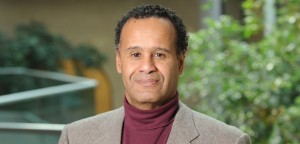When Uber driver Jason Brian Dalton shot and killed six people and injured two others in Kalamazoo, Michigan, on February 20, he did so with a legally purchased gun and no history of mental illness, police said.
The Kalamazoo shooting rampage happened six weeks after President Barack Obama signed an executive order for gun-control measures designed to stop the kind of shooting sprees that have terrorized American churches, schools, and movie theaters. But Obama’s proposals, including background checks and magazine and pistol grip bans, are non-responsive measures that lead to political infighting rather than solutions and don’t prevent violent outbursts like the one in Michigan, said Professor Nicholas Johnson.

“Other than snapping your fingers and making guns disappear, what you are left with is a variety of policies that operate in the margins and don’t address the core dynamics that make guns available to people who are not trustworthy,” Johnson said.
In the first ten weeks of 2016, the United States has seen 48 mass shootings, or incidents where four or more people are shot, according to the Gun Violence Archive. Last year, 374 mass shootings occurred in the U.S., including massacres in which 14 people were killed at a special needs facility in San Bernardino, California, and nine were killed in a church in Charleston, South Carolina.
The dramatic fashion in which Obama laid out his executive order earlier this year “suggested it would have far greater consequences than it will,” Johnson said, criticizing this display as not being “candid” with the American people.
Obama’s use of an executive order in his final year in office also raised questions, the professor said, about why he didn’t take this measure earlier in his presidency, if he knew it was legal and believed it would be effective. If that were the case, the president could have saved the lives of many, including the 20 schoolchildren who died in the Sandy Hook shooting in Newtown, Connecticut, in 2012.
“I think he’s a true believer in the possibility of big government and command-and-control gun policies, but many people disagree with him,” Johnson said. “I suspect he’s frustrated, and he took his best shot with this latest initiative.”
A CBS News/New York Times poll in October found that 92 percent of Americans— including 87 percent of Republicans—favor background checks for gun buyers. Johnson said “NRA types” would fight any kind of de-facto registration that was implicit in some background check proposals.
Background checks, most notably, do nothing to eliminate crimes perpetrated by people who acquire guns from the black market, Johnson said, estimating this number is in the tens of millions. No one from the Obama administration or elsewhere has suggested a good idea to limit the impact of these stolen guns, the professor added.
Mass shootings have sparked discussion about whether people with documented mental health illness should possess guns. Potential data-sharing problems among state and federal agencies and the ability of the mentally ill to obtain a shared access weapon make this an imperfect solution, Johnson noted.
Calls for gun-free zones also raise unanswered questions. Some suggest elementary school teachers should be allowed to carry guns in the classroom. A more palatable response to outside threats, Johnson said, might be specially vetted and trained employees or some type of security officer who possesses an enhanced concealed carry permit.
Across the United States, guns are not just a symbol of personal Second Amendment rights to bear arms; they are “a vital tool of self-defense,” Johnson said.
Supply-side measures to reduce the number of legal guns on the market are disingenuous in their aims, according to the professor. What gun-control advocates leave unsaid is how marginal measures are mere placeholders for a desire to sweep up guns en masse. Assault weapons and sniper rifle bans won’t work unless their proponents are dedicated to “far more rigorous supply controls,” he explained.
Any push for stringent supply controls, such as those in Japan or Great Britain, will be met with a harsh reality.
“Those places started with very, very few guns relative to ours,” Johnson said, estimating the U.S. has upward of 350 million firearms in private hands.

